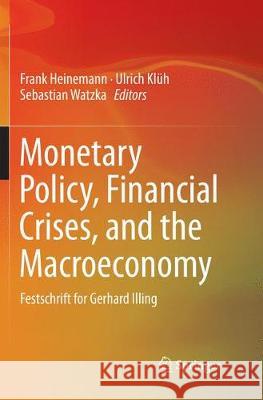Monetary Policy, Financial Crises, and the Macroeconomy: Festschrift for Gerhard Illing » książka
topmenu
Monetary Policy, Financial Crises, and the Macroeconomy: Festschrift for Gerhard Illing
ISBN-13: 9783319858685 / Angielski / Miękka / 2018 / 351 str.
Kategorie:
Kategorie BISAC:
Wydawca:
Springer
Język:
Angielski
ISBN-13:
9783319858685
Rok wydania:
2018
Wydanie:
Softcover Repri
Ilość stron:
351
Oprawa:
Miękka
Wolumenów:
01











